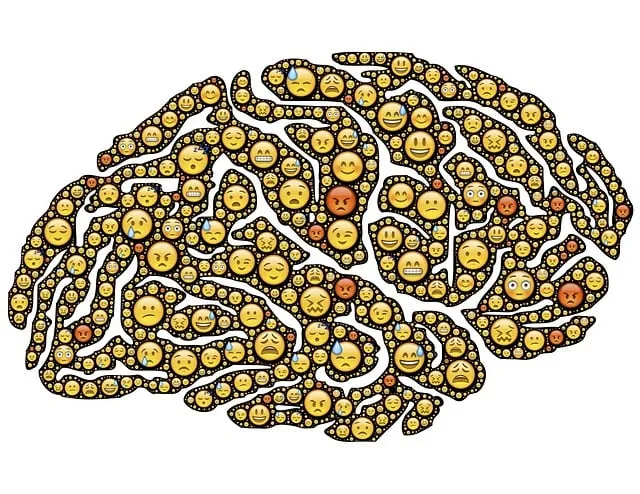The Kaiser Permanente Mental Health Center Lakewood develops innovative resources like mood tracking tools, public awareness campaigns, and journaling exercises to empower individuals in managing their mental health conveniently. Their comprehensive self-assessment tool for mental wellness considers emotional well-being, cognitive function, interpersonal relationships, and environmental factors. Using evidence-based practices from CBT and community outreach, the center ensures accurate assessments and reaches diverse populations. The tool is designed with an intuitive interface, customizable questionnaires, and interactive visuals to facilitate early risk assessment and self-awareness exercises, contributing significantly to overall well-being. They employ strategic implementation and evaluation methods to continuously refine the tools for cultural sensitivity and tailored accessibility within the community.
At Kaiser Permanente Mental Health Center Lakewood, recognizing the vital role of proactive mental wellness management has led to a focus on developing innovative self-assessment tools. This article explores the process of creating comprehensive assessments tailored to individual needs. We delve into identifying core psychological factors, integrating evidence-based practices, and ensuring user-friendly designs. By combining scientific rigor with accessibility, these tools empower individuals to take charge of their mental health, mirroring Kaiser Permanente’s commitment to holistic care in Lakewood.
- Understanding the Need for Self-Assessment Tools at Kaiser Permanente Mental Health Center Lakewood
- Identifying Key Components of a Comprehensive Mental Wellness Self-Assessment
- Incorporating Evidence-Based Practices in Developing Assessment Tools
- User Experience and Accessibility Considerations for Optimal Engagement
- Implementation, Evaluation, and Continuous Improvement Strategies
Understanding the Need for Self-Assessment Tools at Kaiser Permanente Mental Health Center Lakewood

At Kaiser Permanente Mental Health Center Lakewood, recognizing the importance of proactive mental wellness management is paramount. In today’s fast-paced and often stressful world, individuals are increasingly seeking tools to monitor and improve their emotional well-being. This realization has prompted the center to develop innovative self-assessment resources tailored to meet the unique needs of its diverse patient population. By offering accessible and engaging options like mood management tracking tools, public awareness campaigns development, and mental wellness journaling exercises guidance, Kaiser Permanente Lakewood aims to empower individuals to take charge of their mental health in a convenient and personalized manner. These initiatives not only enhance self-awareness but also foster resilience and overall well-being.
Identifying Key Components of a Comprehensive Mental Wellness Self-Assessment

A comprehensive mental wellness self-assessment tool must capture a multifaceted view of an individual’s psychological state. Key components include evaluating emotional well-being, cognitive function, and interpersonal relationships. Tools should assess symptoms of common mental health disorders, such as anxiety and depression, while also gauging resilience and coping mechanisms. Incorporating aspects like mindfulness and compassion cultivation practices, as promoted by organizations like the Kaiser Permanente Mental Health Center Lakewood, can offer valuable insights into an individual’s ability to navigate stress and maintain a positive outlook.
Beyond symptoms and coping strategies, a robust self-assessment should consider environmental factors influencing mental wellness. This includes evaluating social support networks, work-life balance, and access to resources such as mental health services or online platforms (like Mental Wellness Podcast Series Production) for support. Analyzing these elements provides a holistic understanding of an individual’s mental health status and can guide tailored interventions, whether through therapy, policy changes (Mental Health Policy Analysis and Advocacy), or personal development strategies.
Incorporating Evidence-Based Practices in Developing Assessment Tools

In developing self-assessment tools for mental wellness, incorporating evidence-based practices is paramount. Organizations like the Kaiser Permanente mental health center in Lakewood have pioneered effective strategies that can guide tool creation. These practices ensure the reliability and validity of assessments by relying on research-backed methods. For instance, integrating techniques from Cognitive Behavioral Therapy (CBT) into self-assessment questionnaires can help individuals identify negative thought patterns and distressing behaviors, facilitating a deeper understanding of their mental health status.
Community Outreach Program Implementation plays a crucial role in this process. By tailoring assessments to culturally sensitive approaches, tools can effectively reach diverse populations. This is particularly relevant for promoting Stress Management and encouraging the adoption of Self-Care Routine Development for Better Mental Health. Incorporating evidence-based practices not only enhances the accuracy of self-assessments but also fosters trust and engagement among users, ultimately contributing to improved mental wellness outcomes.
User Experience and Accessibility Considerations for Optimal Engagement

Creating a user-friendly and accessible self-assessment tool is vital for engaging individuals in their mental wellness journey, especially when considering the complex nature of mental health concerns. The Kaiser Permanente mental health center in Lakewood understands this, aiming to develop innovative solutions that cater to diverse user needs. By prioritizing an intuitive interface and simple navigation, the tool ensures even those new to self-assessment can comfortably explore their mental state.
Incorporating features like customizable questionnaires and interactive visuals can enhance the experience, making it more engaging and personalized. This approach aligns with the growing trend of Mental Wellness Coaching Programs Development, where accessible tools play a pivotal role in early risk assessment for mental health professionals. Encouraging users to develop Self-Awareness Exercises through such platforms could significantly contribute to overall well-being, as acknowledged by various studies focusing on risk assessment strategies for mental health professionals.
Implementation, Evaluation, and Continuous Improvement Strategies

At the Kaiser Permanente mental health center Lakewood, continuous improvement is paramount when developing self-assessment tools for mental wellness. Implementation strategies involve pilot testing with a diverse group of individuals to gather valuable feedback and make necessary adjustments before wider rollout. This ensures that the tools are accessible, culturally sensitive, and tailored to meet the unique needs of our community.
Evaluation is an ongoing process, utilizing both quantitative and qualitative methods. Metrics such as user satisfaction scores, completion rates, and changes in mental health indicators are tracked to gauge tool effectiveness. Additionally, regular feedback sessions with participants, including those from vulnerable populations, provide deeper insights into the usability, relevance, and impact of the assessments. Integrating these evaluations informs our next steps, facilitating iterative refinements that enhance the tools’ accuracy, usability, and ability to promote positive thinking and resilience building.
The development of robust mental wellness self-assessment tools is a pivotal step towards empowering individuals at the Kaiser Permanente Mental Health Center Lakewood. By integrating evidence-based practices and prioritizing user experience, we can create accessible resources that encourage proactive mental health management. Through ongoing evaluation and continuous improvement, these tools have the potential to significantly enhance the well-being of the community, ensuring that mental health support is readily available and effectively tailored to individual needs.






